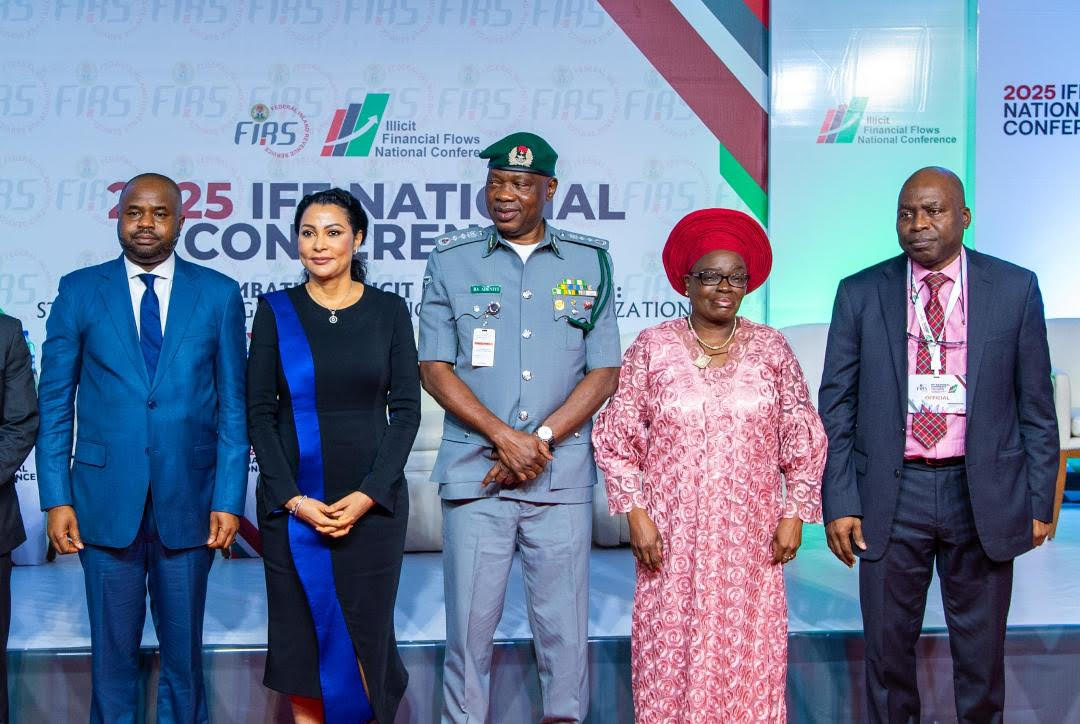377
By Daniel Adaji
Africa is losing more than just money through trade mis-invoicing has reached alarming proportions, with the West and Northern part of the region alone forfeiting $407bn in just ten years.
This concern took centre stage on Tuesday in Abuja at the opening of a two-day national conference on Illicit Financial Flows (IFFs), organised by the Federal Inland Revenue Service (FIRS).
The conference, themed “Combating IFFs: Strengthening Nigeria’s Domestic Resource Mobilisation,” brought together government agencies, experts, and international partners to chart a new path towards economic sovereignty.
Irene Ovonji-Odida, a Ugandan lawyer and member of the Thabo Mbeki High-Level Panel on IFFs, disclosed these figures. She said, “West Africa, of which Nigeria is a critical part, and North Africa lost about $407 billion from trade mis-invoicing in 10 years.”
Ovonji-Odida blamed the Global North for shaping opaque financial and professional systems that perpetuate the problem.
“Indeed, the systems of key professions such as Law, Accounting, Audit, Banking, and other financial sectors are derived from Global North countries further entrenching the overall western thrust of the global economic and financial systems,” she said.
According to her, 65 per cent of illicit financial outflows in Africa stem from tax avoidance via commercial activities, 30 per cent from criminal enterprises, and 5 percent from bribery of public officials.
IFFs, refer to the illegal or unethical movement of money or capital from one country to another. These flows drain resources that could otherwise be used to develop economies, provide social services, or reduce poverty – especially in countries like Nigeria.
IFFs happen in many ways. They include tax evasion, money laundering, smuggling, corruption, and trade mis-invoicing – where companies under-declare or over-declare the value of goods to move money illegally across borders.
Minister of State for Finance, Dr. Doris Uzoka-Anite, expressed worry over the scale of losses in Nigeria alone.
“It is estimated that Nigeria loses $18 billion annually to IFFs due to profit shifting and aggressive tax avoidance practices by some multinational corporations transacting businesses in Nigeria,” she said.
She stressed the need for a unified, strategic response: “Huge sums of money are transferred out of the country which strips the country of resources that could be used to finance much-needed public services.”
The Minister called for a review of outdated international tax treaties. “A lot of the international tax treaties that Nigeria has entered do not presently reflect our renewed resolve for tax equity. This needs to change,” she insisted.
FIRS Chairman, Zacch Adedeji, said IFFs are a structural threat to the country’s economy. “Each unaccounted dollar undermines governance, erodes trust, and translates into lost infrastructure, inadequate public services, and deepening inequality,” he stated.
Adedeji explained that the FIRS is addressing the issue on multiple fronts: championing taxpayer education, deploying digital systems, and coordinating with enforcement agencies through the newly established Illicit Financial Flows Coordination Directorate.
“As the designated coordinating agency under the Proceeds of Crime Act (2022), FIRS has established the Proceeds of Crime Management and Illicit Financial Flows Coordination Directorate,” he added.
Comptroller General of Customs, Bashir Adeniyi, also weighed in, citing how the agency intercepted $8.3m at the Murtala Muhammed Airport. However, he noted the global anti-money laundering body, FATF, seemed more concerned with inflows into Nigeria than outflows.
“It is obvious that the whole of society approach is necessary because of the complexity of IFFs,” Adeniyi stated.
“So, Customs, the tax authorities, the enforcement agencies, EFCC and all of us must work together in a collaborative manner.”
Stakeholders at the conference unanimously agreed that laws alone are not enough. They called for greater coordination, technological deployment, international collaboration, and reform of global financial rules to plug Africa’s wealth drain and foster sustainable development.



